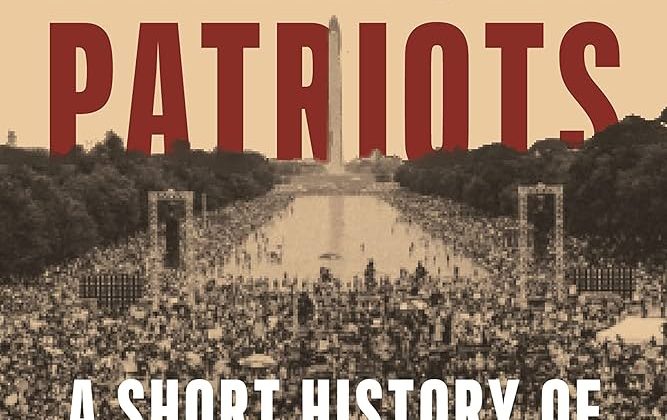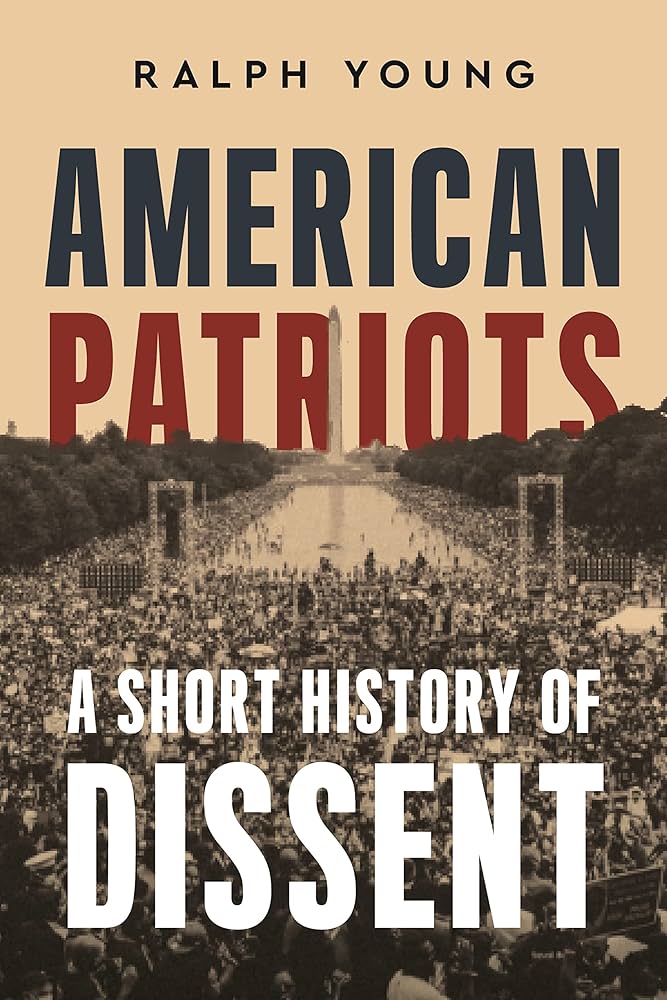

Ralph Young is Professor of Instruction in History at Temple University. This interview is based on his new book, American Patriots: A Short History of Dissent (NYU Press, 2024).
JF: What led you to write American Patriots?
RY: What inspired me to write American Patriots was January 6th. When some politicians began to justify the mob that invaded the Capitol as just good Americans exercising their right to dissent it forced me to rethink my definition of dissent. I delved deeply into how dissent works and how it should be expressed. And I wanted as many people as possible to read an accessible short history of how dissent has shaped the United States. Dissent is going against the grain, it is opposing what is, whatever that is is. Most often it is from a group that demands that the powers-that-be abolish the discrimination they are suffering and ensure that their constitutional rights are protected.
However, the “dissenters” who invaded the Capitol Building seeking to “Hang Mike Pence” on January 6th were not protesting against any real grievance. They were protesting for a lie—the lie that the election was stolen. They were fighting against something that did not exist, like Don Quixote fighting windmills. It also brings to mind images of Klansman lynching African Americans to reinforce white supremacy. And it also was clear that the invaders had a distorted view of American history, carrying their “Don’t Tread on Me” and Confederate battle flags, conflating dissent and peaceful assembly with sedition and treason.
When the framers of the Constitution put the right to dissent in the First Amendment, they were promising the American people that they had the right to dissent if their liberty was threatened or that democracy was in jeopardy. They wanted Americans to have a way to demand their rights if those rights were at risk. Protesting for a lie and wanting to overturn an election is neither honest nor authentic dissent. The dissent the founders had in mind was the right to protest for right, and for democratic rights, not the right to protest against democracy itself. The January 6th protesters were attempting to negate the votes of 81 million Americans (51.3% of the vote). This is an attempt to undermine democracy.
What I try to do in American Patriots is define dissent more narrowly and in light of what the framers of the Constitution had in mind when they inscribed it in the First Amendment. Dissent comes from all political persuasions, but it is only legitimate if it is employed in an effort to expand rights, to honor the values of the Constitution. A central value in the Constitution is the guarantee of equal treatment of all Americans before the law; not for one group above the rest. Dissent is a driving force in a fair and just society, therefore it must be fair to all, must uphold those Constitutional principles for all Americans. That is the democratic process. Attempting to withdraw rights from anyone goes against the Constitution, it is undemocratic, it is un-American. Dissent is in the First Amendment to emphasize the necessity and the duty for all Americans to push the United States to live up to its own moral code.
JF: In 2 sentences, what is the argument of American Patriots?
RY: The United States is a product of dissent—dissent is patriotic in the deepest sense of the word. Activists are not protesting against America but rather pushing the country to live up to its ideals.
JF: Why do we need to read American Patriots?
RY: So that Americans understand the importance of dissent in shaping the United States. The framers of the Constitution understood that the new United States was an experiment in democratic rule. They were creating a republic in which the people exercised democratic rights and were not under the arbitrary whim of a monarch or autocrat or dictator. Therefore, they put the right to dissent in the First Amendment to ensure the people that they could speak up for their rights when they were endangered, without fear of retribution or punishment. They were not thinking of championing protest that would enhance the power of the few at the expense of the many, they were not validating protesting for causes that jeopardized democracy or natural rights, they were only validating dissent that would protect or expand democracy, they were authorizing the right to protest for civil and political rights.
JF: Why and when did you become an American historian?
RY: I loved history since I was a little kid. By the time I was seven I had memorized all the presidents of the USA and over the next few years I read as many biographies and history books that were available for children and young adults. I read books about the Civil War and World War II. I was especially enamored with Lincoln and read everything I could find about him, like Carl Sandburg’s multi-volume biography. It was just natural for me to major in history by the time I entered college.
JF: What is your next project?
RY: I’ve written books on dissenters and protest movements and edited a book on protest art and posters. My next project will be something on protest music.
JF: Thanks, Ralph!